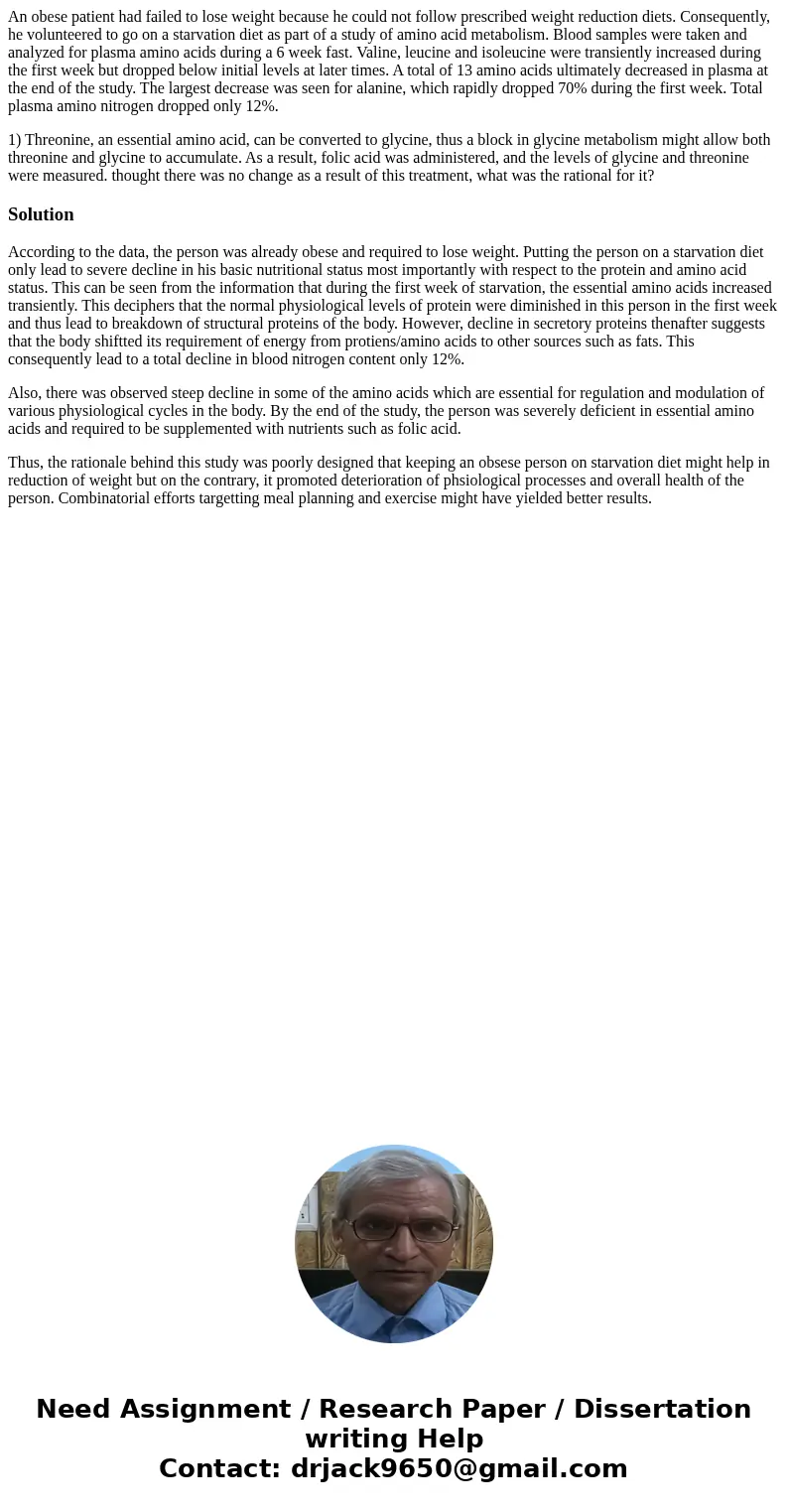An obese patient had failed to lose weight because he could
An obese patient had failed to lose weight because he could not follow prescribed weight reduction diets. Consequently, he volunteered to go on a starvation diet as part of a study of amino acid metabolism. Blood samples were taken and analyzed for plasma amino acids during a 6 week fast. Valine, leucine and isoleucine were transiently increased during the first week but dropped below initial levels at later times. A total of 13 amino acids ultimately decreased in plasma at the end of the study. The largest decrease was seen for alanine, which rapidly dropped 70% during the first week. Total plasma amino nitrogen dropped only 12%.
1) Threonine, an essential amino acid, can be converted to glycine, thus a block in glycine metabolism might allow both threonine and glycine to accumulate. As a result, folic acid was administered, and the levels of glycine and threonine were measured. thought there was no change as a result of this treatment, what was the rational for it?
Solution
According to the data, the person was already obese and required to lose weight. Putting the person on a starvation diet only lead to severe decline in his basic nutritional status most importantly with respect to the protein and amino acid status. This can be seen from the information that during the first week of starvation, the essential amino acids increased transiently. This deciphers that the normal physiological levels of protein were diminished in this person in the first week and thus lead to breakdown of structural proteins of the body. However, decline in secretory proteins thenafter suggests that the body shiftted its requirement of energy from protiens/amino acids to other sources such as fats. This consequently lead to a total decline in blood nitrogen content only 12%.
Also, there was observed steep decline in some of the amino acids which are essential for regulation and modulation of various physiological cycles in the body. By the end of the study, the person was severely deficient in essential amino acids and required to be supplemented with nutrients such as folic acid.
Thus, the rationale behind this study was poorly designed that keeping an obsese person on starvation diet might help in reduction of weight but on the contrary, it promoted deterioration of phsiological processes and overall health of the person. Combinatorial efforts targetting meal planning and exercise might have yielded better results.

 Homework Sourse
Homework Sourse